Right before Christmas 2013, Dave Jones had nearly given up.
The father of four who loved biking, dancing and walking on the beach with his wife, Chris, had come face to face with a future where none of these things would be possible.
He had recently suffered a series of debilitating strokes—just four months after making a remarkable recovery from his first stroke. Now he couldn’t move. He couldn’t speak. He had a weak heart. Seizures shook his body with some regularity.
At age 56, the outlook seemed bleak.
His doctor recommended he live out his days in a residential care facility. But Dave’s wife had other plans for him. She got a hospital bed and a hydraulic lift, and she brought Dave back to the home they’d built in Kentwood, Michigan, on land overlooking a farmer’s lush field.
One December evening, Dave suffered another seizure. His lips turned gray, but he refused to go back to the hospital.
Chris turned to him and said something she’ll never forget.
“I said, ‘Dave, you’re a trouper all the way, so … if you’ve given up and it’s your time, I’ll let you go. But next week the kids are coming home for Christmas. Can we just make it through?’”
At that moment, Dave decided to fight back. He couldn’t say so, but Chris could see it in him.
She remembers it clearly: “It was as if I watched life roll back in.”
Dave hasn’t stopped fighting since.
During a recent conversation, Chris told her husband, “Once I saw you had that fight, then it was like, yeah, we are really going to work hard at this.”
Ready for rehab
The question remained: How would they do it? How would they fight this?
Dave’s doctor ordered in-home therapy, so they gave that a try. First with one agency, then with another.
But Chris quickly discovered there was no expectation that Dave would improve, even with the help of home therapy.
Desperate, she went back to Dave’s doctor and asked for a referral to someone who could stick with Dave and, at the very least, keep him from declining.
Enter the Visiting Nurse Association of Spectrum Health At Home.
Adam Rhoda, a Visiting Nurse Association physical therapist, paid his first visit to the Jones house in April 2014.
Rather than just reading the medical notes and starting a maintenance therapy program, Rhoda set aside all assumptions so he could perform his own evaluation.
He had Chris recount the story underlying Dave’s paralysis:
Dave had emergency surgery to repair a ruptured aorta in March 2013. The surgery caused an ischemic stroke, which he recovered from surprisingly quickly. A series of hemorrhagic strokes came four months later in the aftermath of a cranioplasty—a surgery to replace a piece of the skull that had been removed after the first stroke.
Then came post-surgical complications, including hydrocephalus and a coma.
These surgeries had taken place at a hospital in Pennsylvania, where Dave had been traveling on business when his troubles began.
Concerned that Dave hadn’t been getting the best post-surgical care in Pennsylvania, Chris persuaded their insurance company to let Dave transfer to Spectrum Health Butterworth Hospital.
In October 2013 at Butterworth Hospital, Dave underwent a second cranioplasty. He bled during surgery, however, and suffered more setbacks.
That’s how, late in 2013, he ended up at home with a feeding tube, a quadriplegic wheelchair and a hospital bed.
Despite all his losses, Dave had a few things going for him: An intact mind, a natural tenacity, and a wife of 30 years—ready to battle alongside him.
That spark
When Rhoda heard this story and evaluated Dave’s condition, he saw potential.
Yes, Dave remained bedbound, but Rhoda noticed some voluntary muscle contractions in his arms and hamstrings. In fact, Dave seemed a little stronger than the medical notes indicated.
Rhoda saw hope.
He remembers looking Dave in the eye and saying, “Dave, if you’re in for this, we’re actually going to work to get you better. Not just a maintenance program. Are you ready for that?”
“And he was like, ‘Absolutely,’” Rhoda said.
Dave grabbed onto the hope that Rhoda offered up. Communicating through Chris, who could read his lips and eyes, Dave told Rhoda he wanted to walk.
“And in the back of my mind I’m thinking, ‘OK, this guy’s ambitious,’” Rhoda said. “And I’m thinking, ‘It’s probably not going to happen. But let’s take steps and just see how things go.’”
Rhoda brought in his co-worker, Joshua Douglas, an occupational therapist, who agreed that Dave showed more potential than other health care providers had indicated.
Together they started on a course of aggressive home-care therapy. This push made all the difference in the world, Chris said.
Once Dave started working with Douglas and Rhoda, positive change came quickly.
“We started seeing more interaction, more attention to our activities, more eye contact,” Douglas said. “It just slowly has progressed from there.”
The first big milestone came about five months into therapy: Dave sat up on the edge of his bed and held himself upright.
“That was the big part, getting his core control going,” Rhoda said. “And once he was able to do that, then everything else started to flow.”
Dave soon found he could stand on his own, with a walker. After that he began to take steps. To this day he hasn’t stopped improving.
“The guy’s awesome,” Rhoda said. “He’s like, ‘I want to walk.’ We did that. He’s like, ‘I want to walk to the end of the block and back.’ We’ve done that. And then he’s like, ‘I want to be able to dance with Chris at a wedding.’ Which was huge. And he’s done that.”
Even though they just held each other and swayed, that wedding dance was a big deal.
“At first, the crowd on the dance floor was pretty small,” Chris said. “We got up to dance and it was as if everyone looked at Dave and said, ‘If he can dance, we’d better be dancing.’”
Without even trying, Dave got everyone on their feet.
Aiming high
Dave has now set his sights on a huge step: Walking a 5K with his family in October.
If his home care team thinks that’s too much too soon, they haven’t said so.
“He definitely blows my mind and beats all my expectations,” Rhoda said. “I kind of feel like anything’s possible with him.”
Dawn Langejans, Dave’s speech-language pathologist from the Visiting Nurse Association, feels much the same.
“He’s just such an amazing guy,” Langejans said. “You think, ‘Oh, maybe we’re at the max we’re going to get’ … and then, man, he goes and does something that nobody expected. He’s a literal miracle.”
When Langejans first joined Douglas and Rhoda in working with Dave in 2013, Dave could barely utter a whisper.
Now he carries on conversations.
Dave said Langejans is coaching him to initiate conversation, instead of sitting on the side and staying in the background.
“People will put you in the background if you let them,” Dave said. “She wants me to stay engaged.”
On the occupational therapy side, Douglas is now working with Dave on skills like dressing, grooming and navigating the house with his walker.
No one knows exactly where things will go from here. Long-term neurological rehab isn’t a standard service for home care providers, and the team must continually prove to Dave’s insurance company that he’s making progress.
But they’re committed to working themselves out of a job, by helping him achieve independence.
At that point, it will be back to the two of them—Dave and Chris, pursuing their dream of riding bikes together, walking the beach on Hilton Head Island, picking up seashells with their grandchildren.
“We’re in a place that I never dreamt,” Chris said. “I didn’t think we’d really get here. But we did.”
They found a way against all odds.
It was a true group effort, Chris said. She credits the Visiting Nurse Association team and Dave’s physiatrist, Benjamin Gillespie, DO, for being “willing to give Dave a try” despite the statistics.
“Without them,” she said, “Dave would have never been able to see the possibilities that lie ahead.”
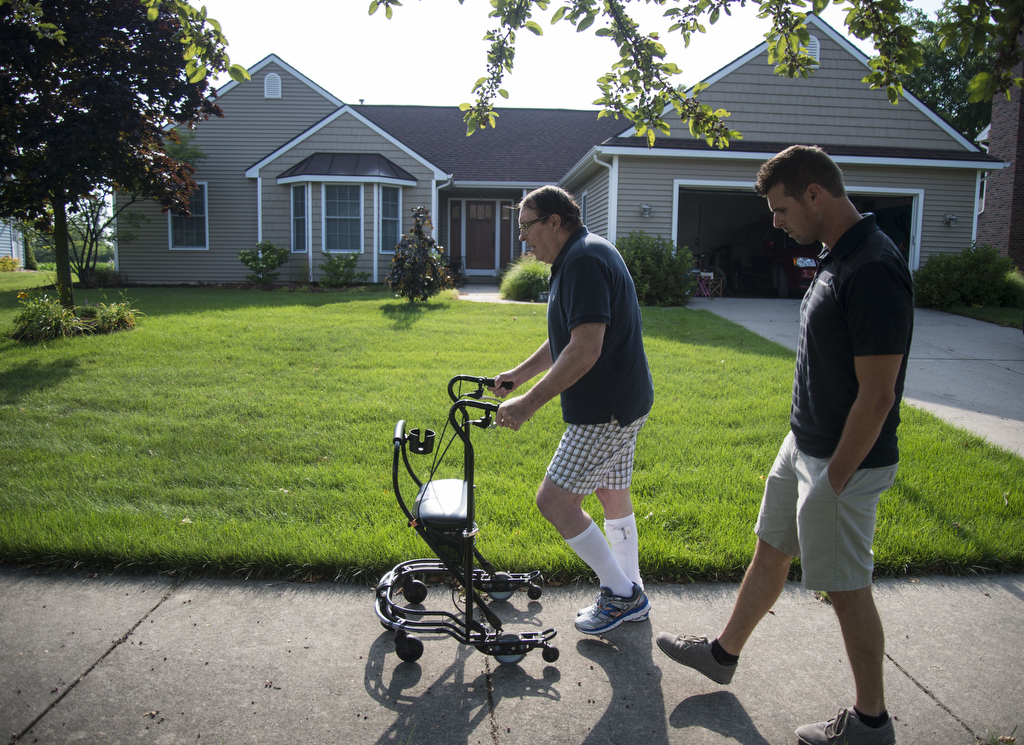
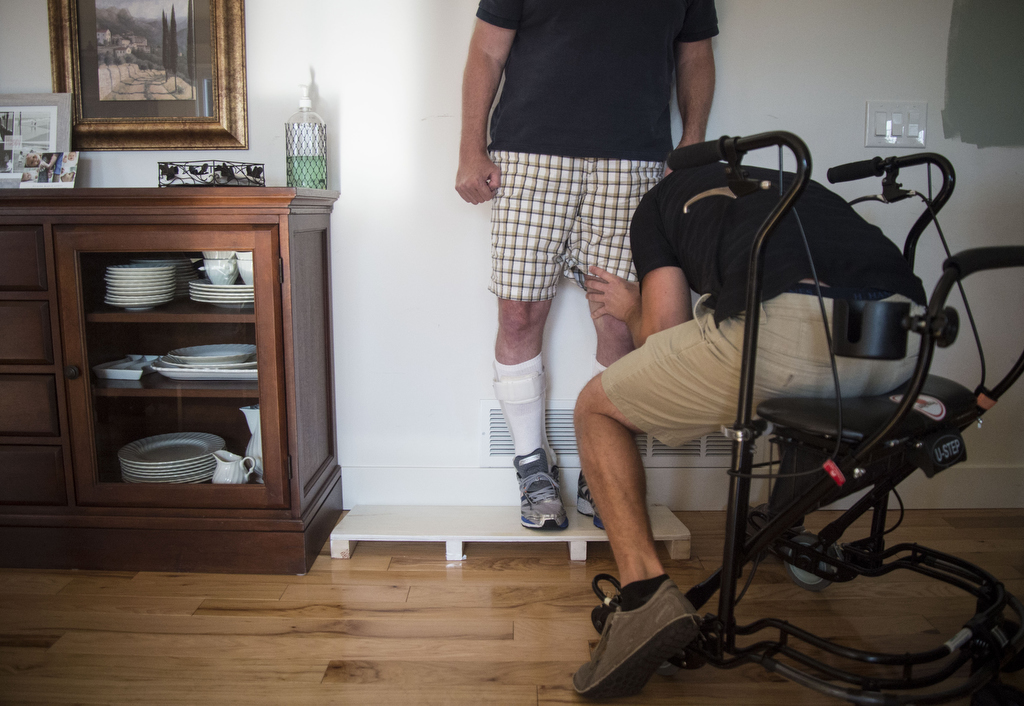
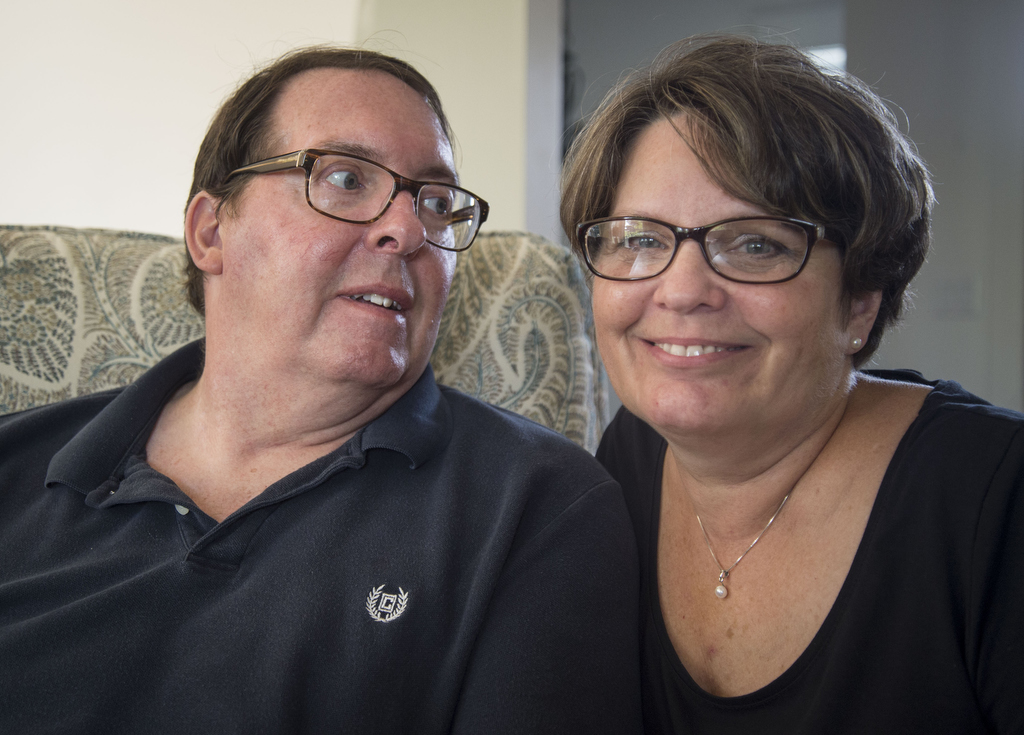
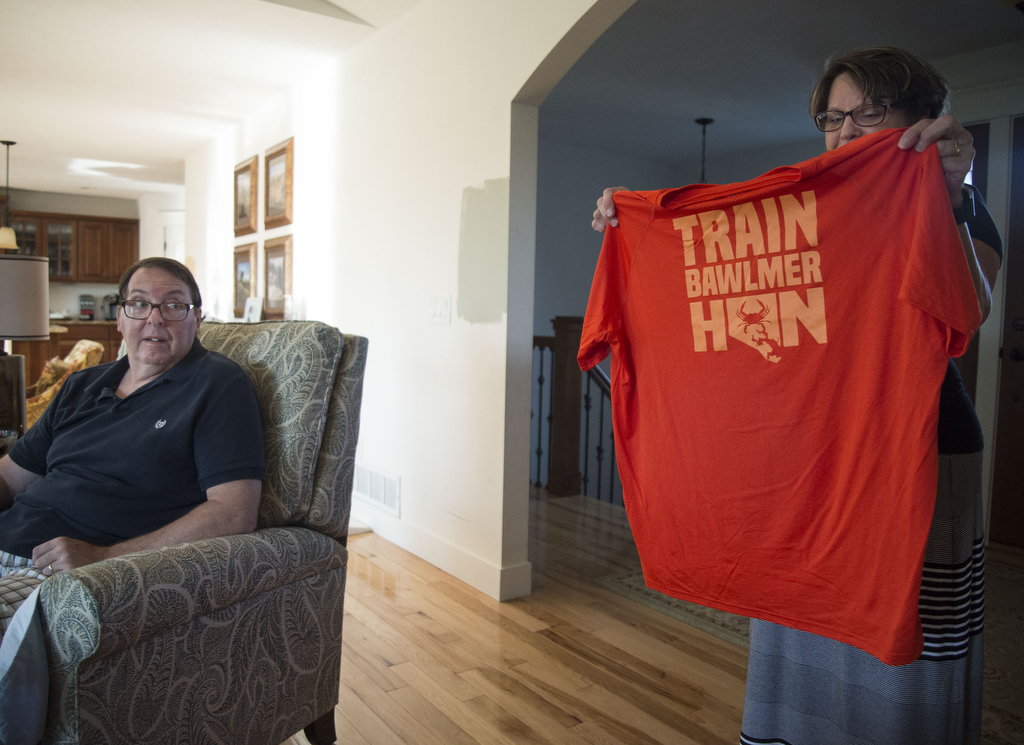
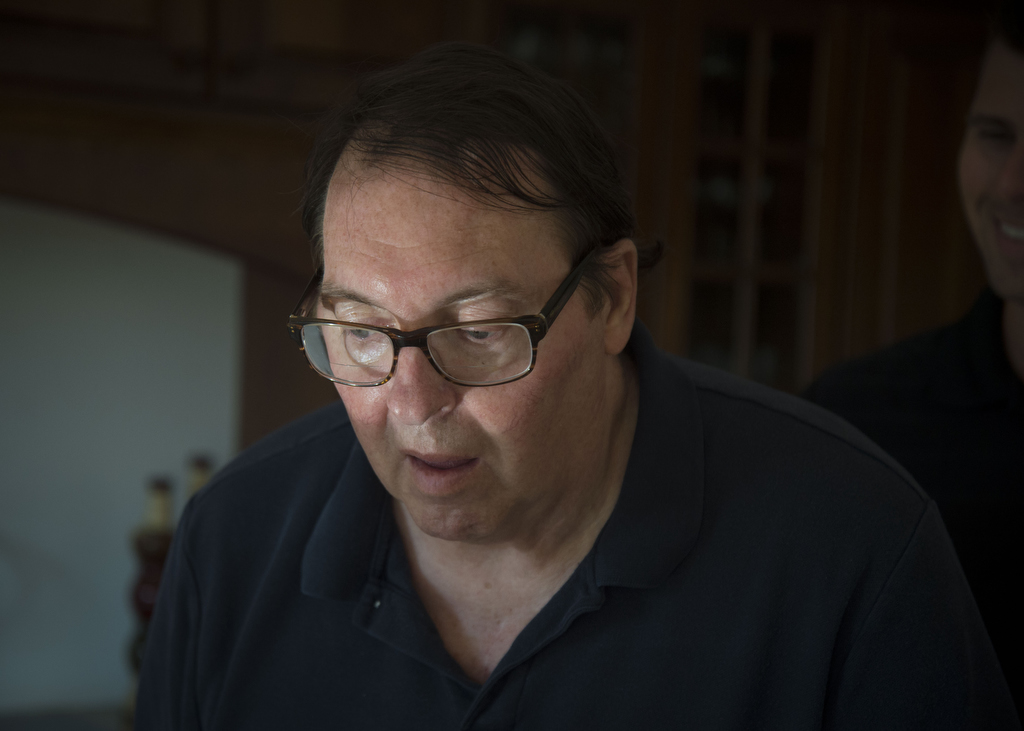
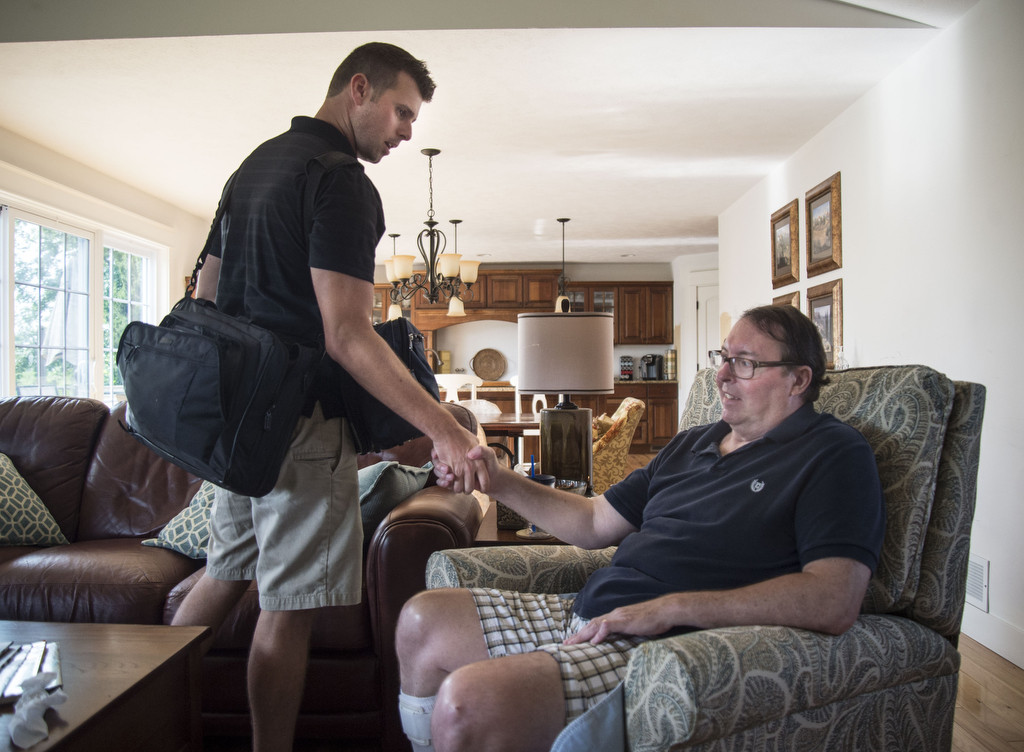
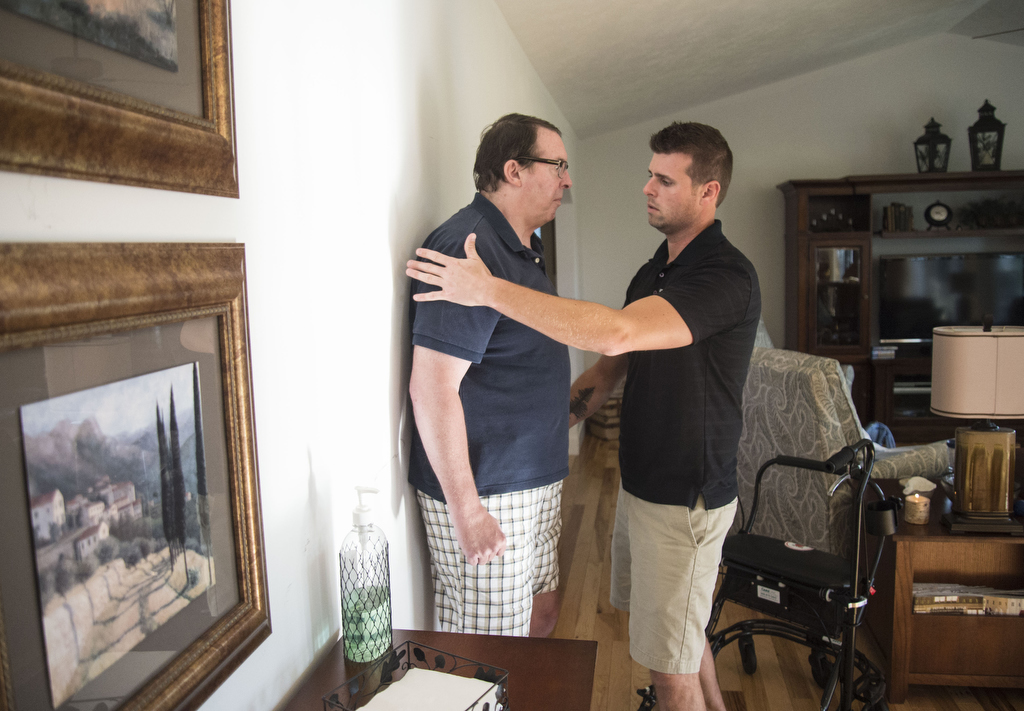
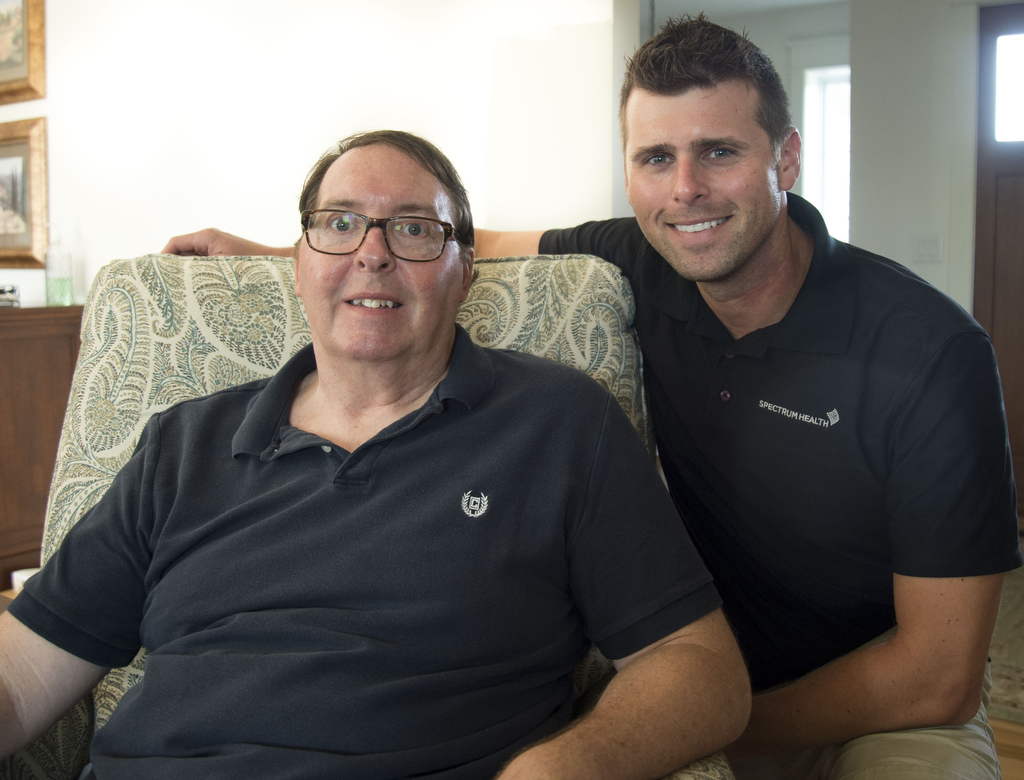
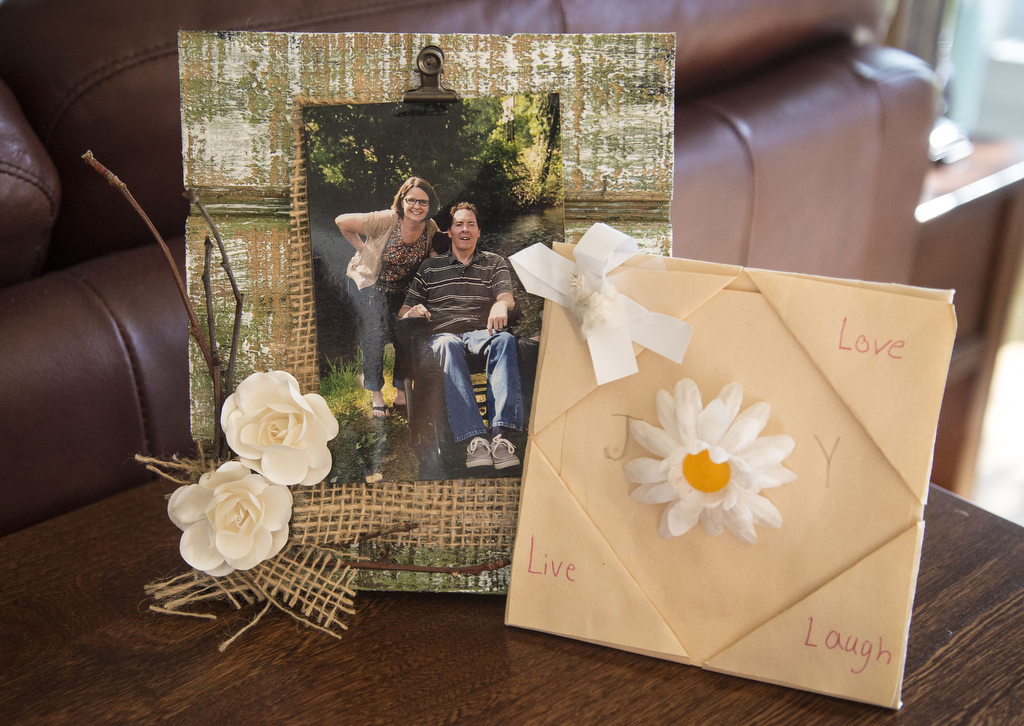
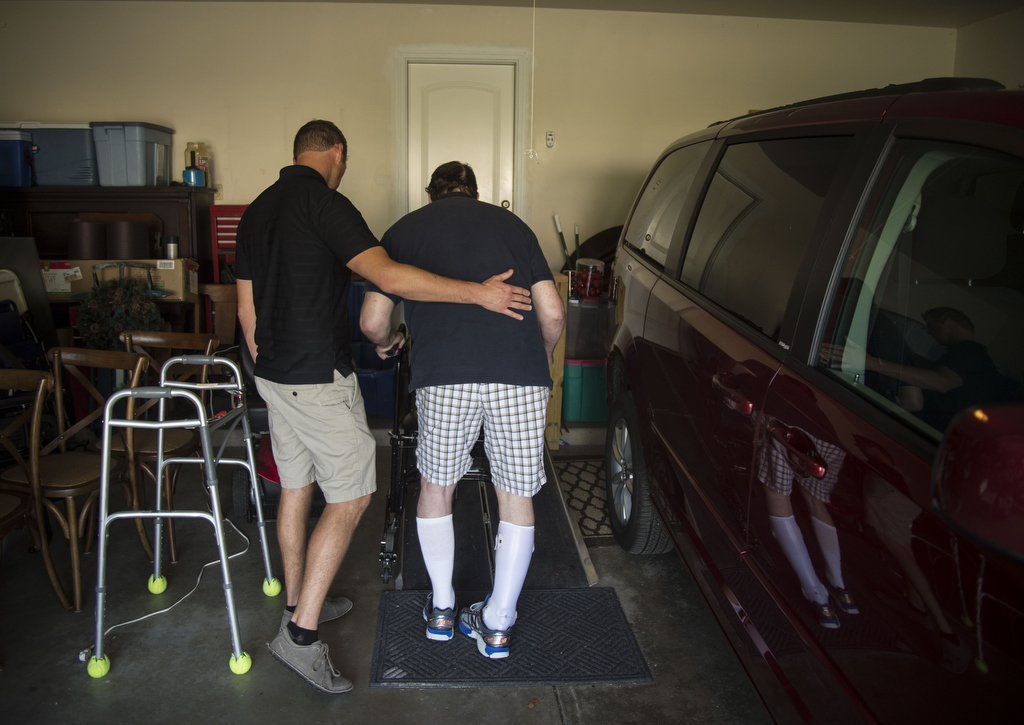
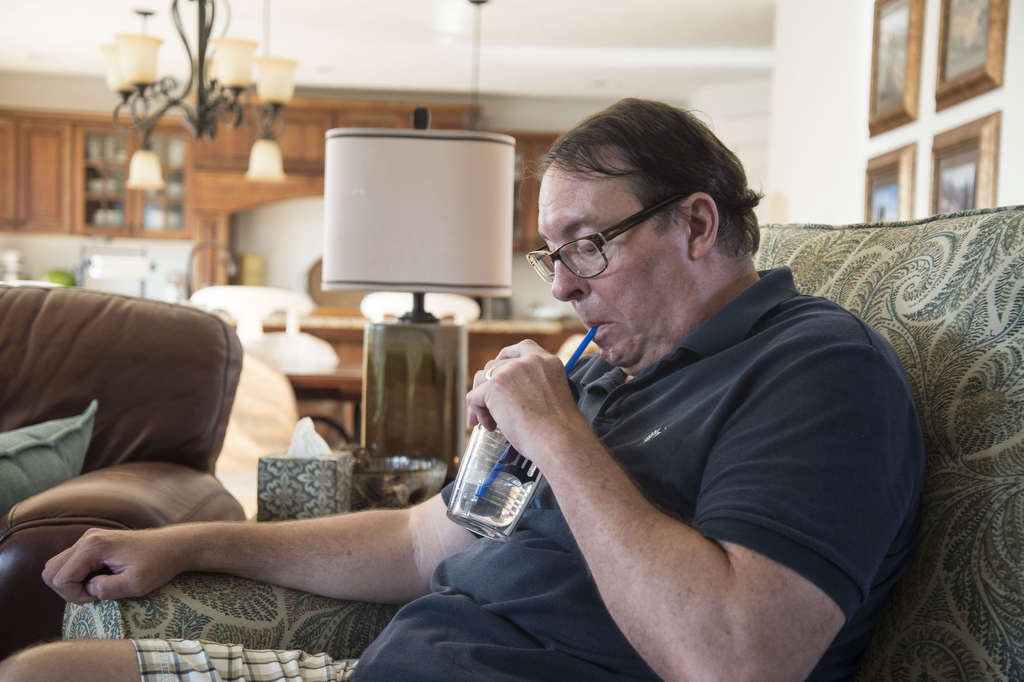
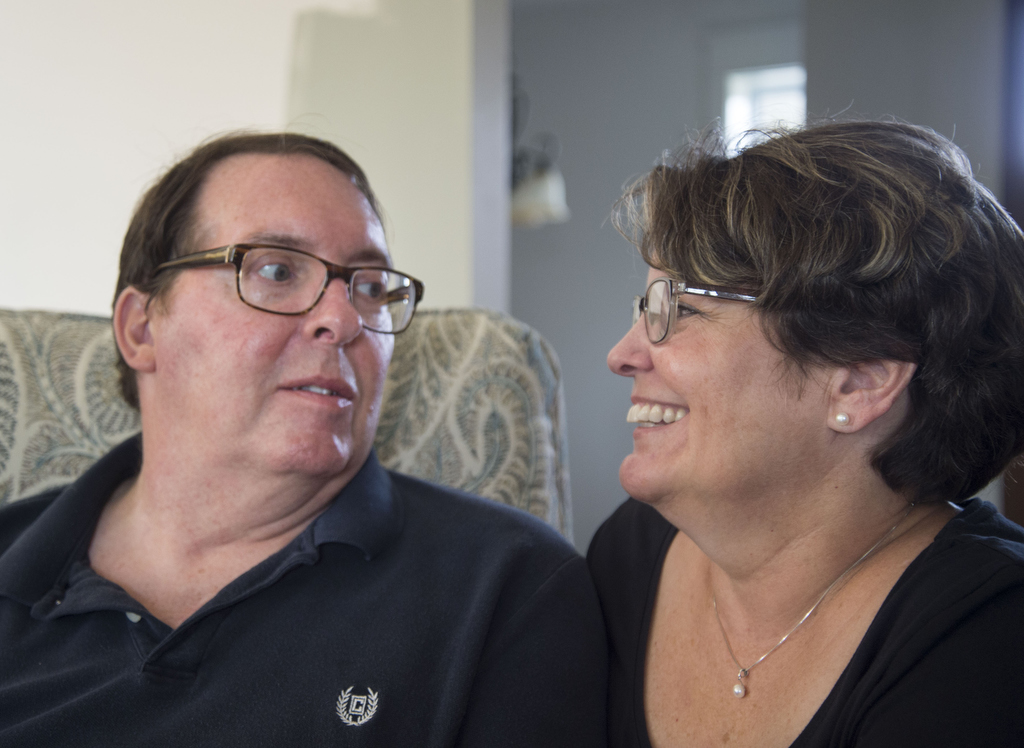
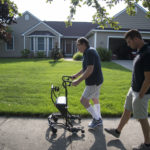
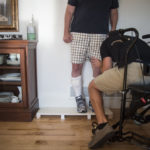
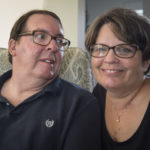
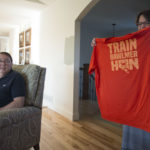

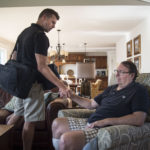
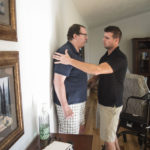





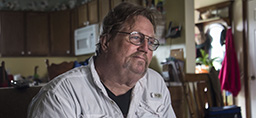 /a>
/a>
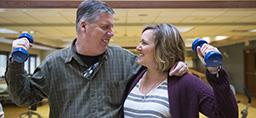 /a>
/a>
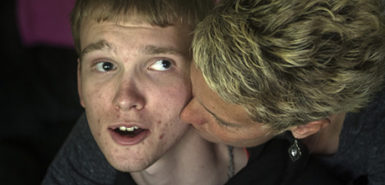 /a>
/a>
While volunteering for Tandam 365, I had the opportunity to “sit” with Dave on a few occassions. This story of his success so far is just amazing to me His wife, Chris, is truly an amazing woman. She indeed helped him to focus with her encouraging ways. What a blessing.
Thanks Betty. Dave and I will always be grateful for the relief you and others provided me during a very difficult time.
Chris I’m so happy for you both with all the accomplishments Dave has made what a miracle !! May God continue to bless Dave with his healing power.